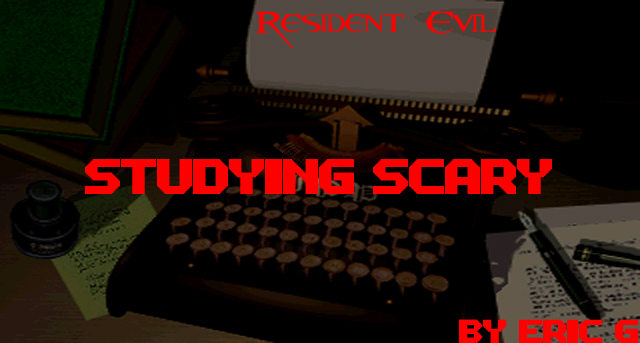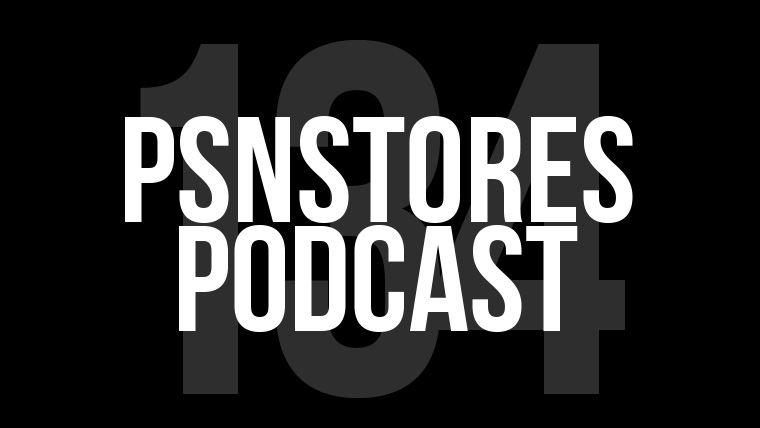
Studying Scary: Resident Evil
Posted by Eric G on September 28th, 2011 | 3 Comments | Tags: Editorial , Eric G , Feature , Features , Resident Evil
Conserve or Die: Item Sparsity and the Ink Ribbon Saving System
Resident Evil is a game about a Special Tactics and Rescue Squad who get caught in the middle of a science experiment gone wrong. In a strictly gameplay sense, though, it’s a game about realistic limitations. Item sparsity is a limitation that is a major part of why Resident Evil is scary. Weapons, ammunition, and other items are hard to come by in the mansion. What’s equally, if not more limiting is your character’s inventory space. Your character can only hold six items (eight if you play as Jill) at a time. There are storage trunks strewn about the mansion that allow you to drop off/pick up extra items, but the inability to carry an unrealistic amount of supplies is often a burden.
Perhaps no item is as important as the Ink Ribbon, without which the player cannot save his progress. Old typewriters can be found in a few safe rooms throughout the game. The player saves his progress by using a typewriter. I like that you’re writing your story; taking note of what you’ve done thus far. It gets the player closer to his avatar and thus more immersed in the game. I also like the fact that in order to use a typewriter, you need to have in your possession an Ink Ribbon. Ink Ribbons are one of the more rare items in the game. When you use an Ink Ribbon, it’s gone. You’ll have to find another Ink Ribbon if you want to save your progress again. Resident Evil’s saving system helps to craft much of the in-game atmosphere, which in turn puts the player on edge, so to speak.
Saving your progress is especially important in Resident Evil because when your character dies, he stays that way. A screen proclaiming “You Died” appears and you’re brought back to the title screen. There are no checkpoints or extra lives. In Resident Evil, as in real life, dead is dead. This sort of realism is extended to the save system. When you save your game, your character is literally taking notes on a typewriter. Typewriters need ink, which means your character needs to find Ink Ribbons. In my opinion, this system is what creates much of the suspense in Resident Evil. It also causes much frustration, but that’s another article altogether. As a player, sitting in a lounge chair with the lights off and a candle lit (isn’t that how everyone plays RE?), Resident Evil forces you to make a lot of decisions. Many of these decisions revolve around saving your progress.
You reach a safe room with a typewriter, but you only have one Ink Ribbon in your possession. The last time you saved, your character was in fine condition, you had a healthy supply of bullets, and herbs (health recovery items) littered your inventory in case of a tight situation. At this juncture, your health is declining, you’ve used all but 10 of your bullets, and you’re completely our of herbs. Here’s the decision you as a player have to make: If you skip the save point and hold on to your Ink Ribbon, you have to make it to another typewriter without dying. If you save your progress now, you’re in a precarious position. Not only is your character in sad shape, but you’ll have to find another Ink Ribbon before you can save again. This situation occurs often enough to make every door you open, every corner you turn, and every shell you dispense mean something. There is weight behind almost all of your decisions. If you decide to wing it and get chain-chomped by a couple of zombies, the time and effort you’ve put into completing the game is erased. (The band-aid on this wound is the fact that you can have multiple save files. If you’re latest save file casts you in a decidedly bleak situation, you can revert to an older save file and progress without losing as much health, using as many bullets, etc.)
Without waxing too poetic about video gaming, the point of playing a game is to beat it (this is of course ignoring those games which have no endpoint). Point A is the title screen, Point B is the end of the game. There are objectives set within the game to guide you from Point A to Point B. Many games take so much time to complete that a single sit-down does not suffice. Enter the saving system. In Resident Evil, item scarcity is but one method employed in order to place the main character in a weakened position. Limiting the number of weapons and other supplies available for use places an importance behind each item. Given the unforgiving nature of the game, the Ink Ribbon is perhaps the most important item. In order to save your progress, you need to find and use one of those elusive Ink Ribbons. I’m sure it’s possible to beat Resident Evil without saving your progress, I’m just not sure I’d like to try it.






